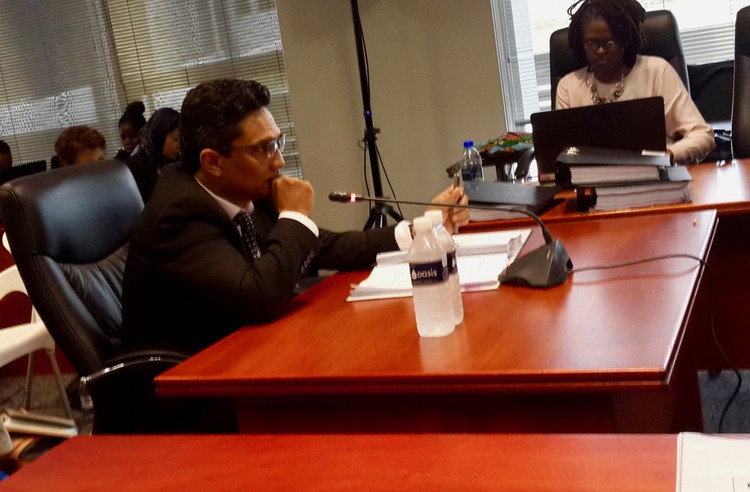Bathabile Dlamini ‘deliberately’ excluded special advisor from grants process
Minister gave clear instruction that the SASSA executive should not interfere
Zane Dangor, former Special Advisor to Social Development Minister Bathabile Dlamini, said he was “deliberately left out” of the planning of the takeover of the social grants payment system, because Dlamini knew he would disagree with it.
This emerged on Friday during the inquiry into Dlamini’s actions at the Office of the Chief Justice in Midrand. Last June the Constitutional Court ordered the inquiry into Dlamini’s role in the social grant crisis.
In October 2015, the SA Social Security Agency (SASSA) promised the Constitutional Court that it would take over the payments of social grants by 1 April 2017 from Net1 subsidiary Cash Paymaster Services (CPS). But it failed to meet this deadline.
The inquiry, chaired by retired Judge Bernard Ngoepe, is trying to determine: whether Dlamini sought the appointment of individuals to lead the work of taking over the payment system, who would report directly to her instead of to the SASSA CEO; the details of appointment of the “workstreams” (the technical term for the teams that worked on SASSA taking over the payment system); and why the Minister did not disclose this information to the Court.
Throughout Dlamini’s testimony in the inquiry, she claimed that she created the workstreams to help SASSA take over the payments of social grants and it was because of the urgency of the situation that she told them to report directly to her.
Nicole Mayet-Beukes, advocate representing Dangor, asked Dangor to explain his relationship with Dlamini as her Special Advisor.
Dangor said Dlamini consulted him on many things such as: policy development, campaigns on gender-based violence, political speeches, and political advice, but “curiously”, he was not consulted on the establishment and work of the workstreams.
Mayet-Beukes then asked Dangor if he had ever formally told Dlamini that he thought the workstreams were operating parallel to SASSA.
He said he had raised this in October 2016. The workstreams had not come up with any option other than extending the CPS contract, and the SASSA executive did not know what was happening. “I raised that with the Minister”, Dangor said.
He said he had also raised it informally with Dlamini several other times.
Ishmael Semenya, advocate representing Dlamini, asked Dangor if he could recall dates, times and places when he raised the issue informally.
“I can’t confirm those exact details, but that does not mean it didn’t happen, Mr Semenya”, Dangor replied.
Semenya asked Dangor to explain exactly how he thought the workstreams were hindering SASSA’s work.
“The Minister gave clear instruction that the SASSA executive should not interfere with the workstreams and should focus on the day-to-day operations of SASSA, so the executive could not propose its solutions because it was told not to interfere,” said Dangor.
Semenya asked, “But did SASSA have a clear plan of its own on how it was going to reach the April 2017 deadline?”
Dangor replied, “Not when I came in as director-general in November 2016, no.”
Semenya asked, “So both SASSA and the workstreams had no clear plan on how to meet the deadline?”
“Yes, and I don’t understand why this is the case, when you look at the time they had to come up with a plan, and the workstreams coming in at an expensive rate, and further expertise was brought in to complement internal expertise,” replied Dangor.
Semenya concluded his cross-examination. Ngoepe said written arguments would be submitted on 2 March and oral arguments would be heard on 19 March.
Support independent journalism
Donate using Payfast

Don't miss out on the latest news
We respect your privacy, and promise we won't spam you.
© 2018 GroundUp. 
This article is licensed under a Creative Commons Attribution-NoDerivatives 4.0 International License.
You may republish this article, so long as you credit the authors and GroundUp, and do not change the text. Please include a link back to the original article.

